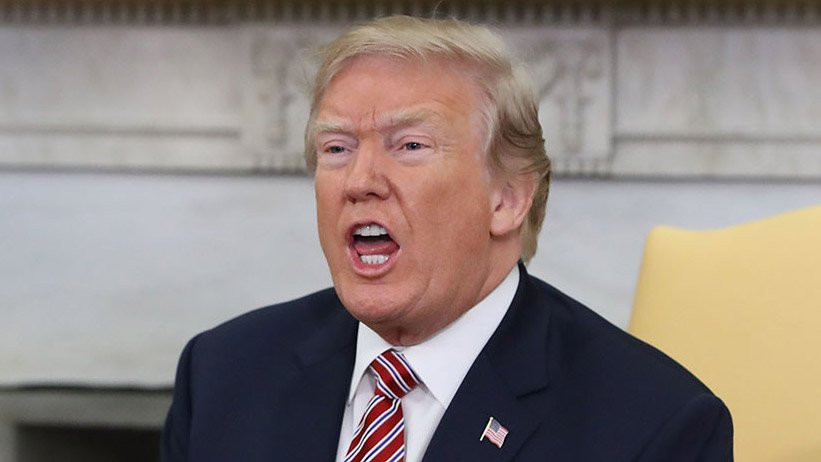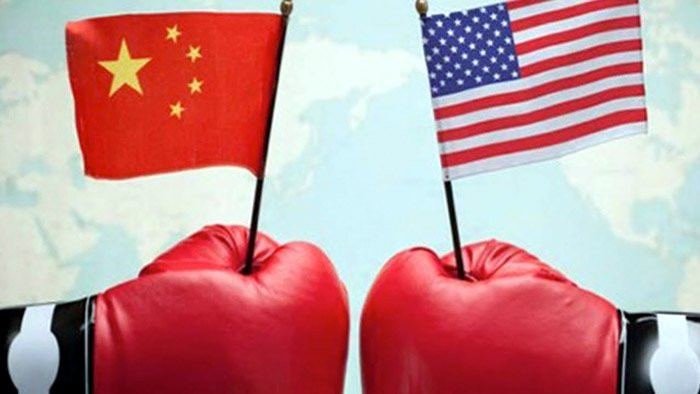Mr. Trump "adds fuel to the fire", China is in turmoil
Beijing continues to criticize the recent moves by the Trump administration to "add fuel to the fire", with Chinese analysts even warning that it is a sign of escalating the trade war between the two countries.
Beijing continues to criticize the recent moves of the US President's administration to "add fuel to the fire".Donald Trump.Chinese analysts even warned that it was a sign of escalating the trade war between the two countries.
War of words
In a message posted on Twitter on July 25, President Trump accused China of deliberately "playing dirty" by attacking American farmers to force him to make concessions on trade.
|
| US President Donald Trump. Photo: RT |
"China is targeting our farmers, who they know I love and respect very much, in a way that forces me to continue allowing them to take advantage of the United States. They are playing dirty and will fail. We have been playing nice so far! China took $517 billion from us last year," the White House leader wrote.
The remarks against China came just a day after the Trump administration announced it would launch a $12 billion funding plan to offset the impact of retaliatory tariffs from China and other countries on American agricultural products.
According to US Secretary of Agriculture Sonny Perdue, the above plan is only a short-term solution, aimed at countering the "illegal" reaction of China, Canada, Mexico, the European Union (EU) and a number of other economies to Washington's tough trade sanctions.
In response, Chinese Foreign Ministry spokesman Geng Shuang stressed that the trade disputes initiated by the US will not bring results. This official said that no one wins in a trade war. He called on the Trump administration to "listen to the voice of reason at home, the legitimate demands of the international community, recognize the situation and abandon the wrong path."
The Chinese Foreign Ministry spokesman also reiterated Beijing's stance that it will "respond tit-for-tat" to Washington's "aggressive" moves.
The hidden meaning behind the "tit for tat" moves
According to statistics from the Ministry of Agriculture and the General Administration of Customs of China, in 2017, the country imported about 24.1 billion USD worth of American agricultural products, accounting for nearly 1/5 of the total value of agricultural products imported into China last year.
|
On July 6, Beijing retaliated against Washington’s new tariffs on $34 billion worth of Chinese goods by raising similar tariffs on U.S. imports, including many strong commodities such as soybeans, beef, pork, sorghum and fruit. China’s new import tariffs mainly affect farmers in the U.S. Midwest, a key constituency for President Trump and Republican politicians.
Chinese policymakers have launched a “precise counterattack” to pressure President Trump and his party ahead of the midterm elections in November, according to the South China Morning Post.
Liu Weidong, an expert on US relations at the Institute of American Studies, Chinese Academy of Social Sciences, said it had only been 20 days since Beijing began imposing new import tariffs on US goods, so it was too early to say whether they were effective.
But Mr Liu said Washington’s plan to support farmers could be a precautionary measure to help Mr Trump appease voters in key areas. The White House leader may be afraid that voters there may reconsider their support for him if China’s tariff hikes have serious consequences.
Wang Huiyao, president of the Center for China and Globalization, added that Mr. Trump may also want to show China and other countries that he is decisive in igniting a trade war.
However, Pan Rui, a researcher at Fudan University in Shanghai, warned that China should not overestimate the importance of the midterm elections for Mr. Trump. "Even if the Republican Party loses some seats, Mr. Trump is unlikely to make major changes to his foreign policies," said expert Pan.
Mr. Pan assessed that Washington's plan to subsidize farmers implies that either Mr. Trump wants to apply "maximum pressure" or he is treating China as a strategic rival that must be contained at all costs. In an interview with CNBC on July 20, Mr. Trump threatened to impose additional tariffs on Chinese goods worth a total of up to $500 billion, equivalent to the total value of China's exports to the United States each year.
Observers warn that the refusal of both the US and China to de-escalate and make concessions to each other is pushing the world towards a large-scale trade war. Not only will the world's two leading economies be affected, but other countries will also suffer negative impacts due to the series of retaliations, "both in quality and quantity" between them.




